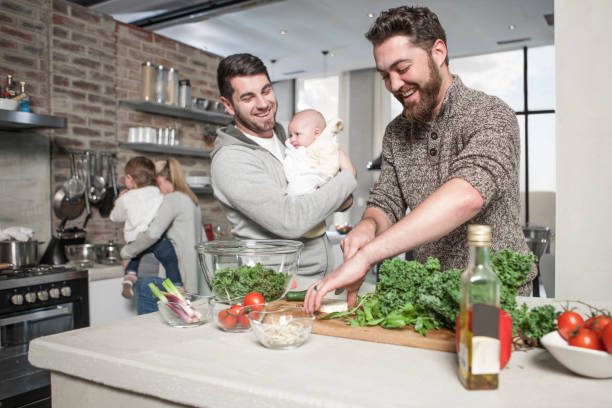Introduction Of How to be a responsible parent when your relatives are unvaccinated
How to be a responsible parent when your relatives are unvaccinated. Have you ever gone out of town or left your children with a trusted family caregiver? Only to return home and be faced with questions about why your child wasn’t vaccinated. If so, you’re not alone. This blog teaches how to be a responsible parent when others in your family are unvaccinated. You can also read The 7 Best Places To Visit China During Chinese New Year.
Many adults have limited contact with their extended family members due to geography, socioeconomic status, a lack of common interests, and other factors. However, most families do have some degree of contact. Therefore, you must be prepared to answer those uncomfortable questions. Handle any misinformation that may come up regarding your child’s vaccination status (and those of their other relatives). Here are 5 tips on how to be a responsible parent when others in your family aren’t vaccinated:
Communicate with your child’s caregivers
If you have chosen to homeschool your child, then you also have the opportunity to communicate with your child’s teachers. Most states have laws that protect homeschooled students from being forced to receive vaccines against their will. Suppose you have chosen to send your child to public school. You’ll want to ensure that your child’s caregivers understand why you make your own decisions.
This communication is especially important if your child is currently ill or injured and may be more susceptible to infections. There are two ways you can communicate with your child’s caregivers. You can either talk to your child’s caregivers one-on-one or create a communication plan with your school and parents’ association.
Learn about your childcare provider’s vaccination preferences
While vaccination is a personal choice, and you may not have to know your childcare provider’s preferences, it is helpful to know your childcare provider’s preferences. This will help you explain that you respect their preferences and why you make your own decisions. If you are concerned that your child could be contagious, the other person must understand why your child is sick.
There are many ways you can determine your childcare provider’s vaccination preferences. You can ask a few simple questions, such as “what vaccinations do you prefer for your children to receive? “Do you have any particular reasons that you prefer one vaccination over another?” and “what are your concerns about vaccines?”.
Explain why you make the decisions you do
If your child is unvaccinated, it is important that you calmly and respectfully explain your reasons for making the decisions you make. This is especially important if your child is sick or injured, as it is more likely that your child will be contagious. If your child is unvaccinated, the other person must understand why your child isn’t vaccinated.
You can explain your reasons for not vaccinating your child by sharing your beliefs and educating the other person. However, avoid becoming argumentative and stay calm while sharing your reasons. It is okay to politely explain your reasoning, even if you know they may not be the other person’s.
Be prepared for misinformation and offer evidence when it is asked for
Vaccine misinformation can often be found online, particularly in Facebook groups, Reddit forums, and websites that oppose vaccinations. Vaccine-related misinformation is often purposely misleading, so be prepared to offer evidence when it is presented.
It is also helpful to arm yourself with scientific information about vaccines, such as by using resources such as the Immunization Education Council (IEC) and the Immunization Action Coalition (IAC) and reading vaccine information sheets or vaccine patient information sheets. If you encounter misinformation or people opposed to vaccinations, be prepared to offer evidence that you have been vaccinated by pulling up your vaccination records on your phone or computer.
You can also try to get the conversation back to why your child is unvaccinated by asking questions such as “Why do you think your child is unvaccinated?”, “If you had your child vaccinated, what do you think would happen?”, “Isn’t it important that children in your community are vaccinated?” and “Why do you choose not to vaccinate your children?”.
Stay calm and use respectful language.
While being unvaccinated is a personal choice, and the other person must respect your choice, you still have the right to be safe and healthy. Therefore, you have the right to know whether the person caring for your child could be contagious. While you may want to argue with the person about why your child isn’t vaccinated, this is never acceptable. Instead, stay calm and use respectful language.
“If you had your child vaccinated, what do you think would happen?”, “Isn’t it important that children in your community are vaccinated?” and “Why do you choose not to vaccinate your children?”.
Conclusion
If you have chosen to leave your unvaccinated child with a caregiver, you have a responsibility to protect the other person’s health and safety. Therefore, you need to know your caregiver’s vaccination preferences before leaving your child with them. Additionally, you should ask the caregiver about their vaccination status and ensure they understand why you make your own decisions.
If you encounter misinformation or people opposed to vaccinations, be prepared to offer evidence that you have been vaccinated by pulling up your vaccination records on your phone or computer. You can also try to get the conversation back to why your child isn’t immunised by asking questions such as “Why do you think your child is unvaccinated?”, “If you had your child vaccinated, what do you think would happen?”, “Isn’t it important that children in your community are vaccinated?” and “Why do you choose not to vaccinate your children?” Contact your school or childcare provider for guidance if you need help navigating these tricky situations. You can like how to be a responsible parent when your relatives are unvaccinated.
